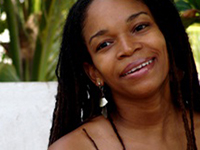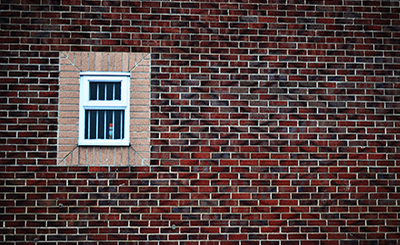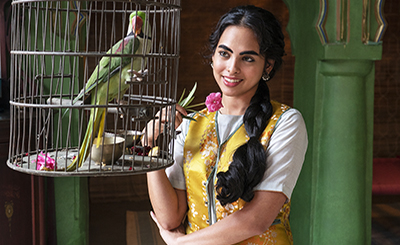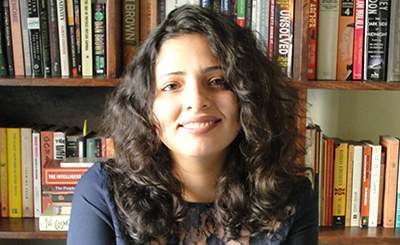
Thirteen poems by the Jamaican poet, author of two collections of poetry, Kinston Buttercup and The Festival of Wild Orchid, as part of World Poetry/Prose Portfolio [WPP], curated by Sudeep Sen
Letters To Dead Boyfriends
I walk dead alive in a black and white
soundless motion picture
of walking, wading through river water with you.
The secret–whispering trees,
the blue air of the Blue Mountains — accomplices.
You never dreamed me your complaint
of the sun scorching your face
in your final resting place,
but you dreamed me goats
sent your messages in waves,
of the bobbing sea of my dreams.
It is after the last sea dream that I write:
“I’m in the living world of my daughter,
goodbye, goodbye, my illegitimate lover.”
II
Remember the day we spent in the upstairs room
of the cabin above the brook at World’s End
on the way up to the Blue Mountains?
There were birds, outside our window
we didn’t pay attention to.
And you waited, while I loaned the chef
from the cabin a stone’s throw from us
a knife to chop up greens for his stew.
I remember you
in that room, above the brook at World’s End
on the way up to the Blue Mountains.
Tomredcam: Seescape
I
I pass students under old trees, at the art school.
I pass shit on the wall, scrawled: God is sun.
And as I cross the light,
God beats down.
II
In the middle of weaving through cars
in front of the Tom Redcam library, Charlie blows a gasket,
growls, Me tired ah unnu raas!
III
Maybe the sky is bearing her down,
maybe the child’s father is skilled at disappearing,
appearing, who knows?
But in the Tom Redcam Library, a young mom
reads to her baby.
Mystic Mountain Revelation
There’s a school of yellow-streaked-silver-fish,
a pack of orange carp.
Throw some peanut halves in and you have
a peanut-feeding fish frenzy in the pond.
From the pond we shuffle our feet along
like the back legs of a millipede, or is it centipede?
to get strapped into the Mystic Mountain Sky Explorer ride
while the attendant who never meets our eyes
instructs; sit quickly, get in, get in.
Up here, with the trees, the birds,
above the fast moving, fast buckling attendants
we see the grey/black road and cars juxtaposed
on the landscape of sea, beach.
Up here, we see the terrain that climbs
with the sky-reaching-trees:
fruits that stay, ripe, then rot
like a poet, perhaps,
sticking to her native tree.
Busted Eardrum
Give it 6 weeks, it should heal, Doc says.
For the next 6 weeks, she’s the girl
who walks with night in her ear,
right there in her left ear
every waking, sleeping day.
Rumbling, tumbling, varooming
big booming vehicles echo
in her ear. And for a hurtling second
she’ll be superhero, with tunnel hearing,
capable of holding a sound longer
than most anyone—
the water tilting in a drinking glass
an ocean roaring in her ear.
The Festival Of Wild Orchid
I
It was death
riding the ocean in a tomb of bodies;
so she howled an ancestor-waking howl
to her grandmother spirit in the trees, who,
stripped bare, begged the West Indies
to fit her granddaughter with wild orchid
leaves and the hardiness of a tree.
II
A tree stands bare, naked
like the first African woman
to stand on this island
with a swelling ocean for a tongue
and a cry
that stripped the trees of all the leaves.
Mark it!
It is the Festival of Wild Orchid.
Dear Phibba
Your name half-rhymes with Syvah —
the dance move that’s in.
So when I think of you, I say
syvah, syvah, syvah, like in the song
and you know Phibbah, it’s not a bad comparison
for when women syvah, they squat for take-off
spread wings, and fly.
When they syvah, Phibbah
their feet remember
the wheels and tuns you did
at fellow slaves’ wake
singing; when I die hallelujah bye, bye
I’ll fly away.
And the take-off
when the torso comes fully into play
resembles the throwing off of shackles
and I sing; syvah, syvah, syvah
and think of you Phibbah
in miserable slavery.
How you suffered through each infection
Thistlewood gave you
as he cummed every skirt it crossed his mind to;
how you must have wailed when his son —
your mulatto child died.
This wasn’t in the diary. He kept it ‘dignified’.
And as the women release in
syvah, syvah, syva,
their hands like albatross’ wings
I think: in what moment
did you hatch your freedom plan
on this confounded man?
Venezuela Journal
At the back of the plane
on the way to Venezuela
the tail dips, the wing swings
as the bird battles mountain and wind.
I think: Did she think of me, as I of her
at the back of the plane
on the way to Venezuela?
…
The first morning, I sit at the window,
look out for her, and write
as bikes, cars, people navigate the road.
Did she leave that man by the window
standing there in his apartamento,
like a statue, looking down?
Is he too searching faces for hers?
Will she be the help coming in to change el bebé
in another apartamento I look right into
from the 10th floor of the Hotel Alex?
¿Madre mía, donde estàs?
The clouds lift from the mountains
in the la Candalaria area of Caracas.
Birds gather on roofs, then
soar above human conditions.
You are the cloud, mi Madre, ghost-like.
Two hundred years back in a rented room
in downtown, Kingston,
Simón Bolívar penned la Carta de Xaymaica.
Today I sit at the window in the Hotel Alex,
sip Jamaican rum from the bottle
hit letters on the keyboard
and look down to see mi madre
in every brown-skinned woman
passing on the road.
Brother
At nine, I pick flowers for your birthday,
wishing you were playing in the garden, or on
the verandah, taking the ladders off the fire truck,
arranging them to rescue
the child trapped in the room.
At seventeen, I come home from the mission tent
clutching the hope for a miracle
like a crystal in my hand that drops
and splinters when I see you —still
as you were before the crusade.
At twenty-four, I stand in the morgue
of the hospital you were born in.
And they screwed up again: a girl shares
your cold chamber. But I resent more
your botched delivery.
Norvin, when you died, I walked in a whirlwind.
Your father? Glass, splintered, senseless,
barring me and your mother from the cremation.
For more than a year your mother
seemed obsessed with ovens:
putting in the beginnings of puddings, pies
tarts; taking them out, completed.
Sometimes I see you, once in a boy
at a school I taught — the same living hair
cut close to the scalp; the same smile.
Norvin, my brother, I kiss your black brow
and wish my world was like my daughter’s
where a tear drop would bring you back.
The Artist
If I could afford it, I would buy that work back
from the government and call it The Singing Poet.
— Christopher Gonzalez
Can you tell a man not to feel
the sting of rejection,
after he used all of himself up
in tribute to Marley,
the legend he saw as a tree?
Can you tell him he saw shit:
you want legs, not a trunk
and not expect him to leave your city
for the trees, the sea and the riva mumma
pond in Runaway Bay, St. Ann?
When I met Christopher Gonzalez
the riva mumma’s face he’d seen in the pond
not far from his home in St. Ann, and in his dreams
was on every neck on every canvas in his studio.
I believe he married her,
though her river hands didn’t remove the clouds
from his eyes, guarding the words he uttered
as we pulled on our spliffs on the beach;
drew sustenance from the sea
and engaged the red head Liz.
When I pass the same beach—
that now only hotel guests can access—
I imagine your Marley, still rising from the roots,
in Island Village, St. Ann,
picking Redemption Song, chanting down Babylon
with your river mumma companion, in harmony.
The Dance: 1986
Jerk smoke, expectation
– the scent of the night.
The big box booms
and the stars wash their faces
to stay up for the dance.
The Cool and Deadly Queen reigns
in the court. Her red, riding hips
rub and dub
the man who wines her on the wall,
the trunk of a tree
– oblivious.
Young eyes steal from sleep
to let it in –
one drop
dancehall
creation, in the skin.
Ms. Cherry
in a corner
slow pumping.
The Dance: 2006
It threads the air like a kite unnerved.
It envelops this Saturday night
dance at Tavern where men nurse guns
and Guinness, shifting their weight
from foot to foot and eyes up and down the street.
There’s a room spray-painted with blood
that hasn’t been rented in weeks;
you pass there to go to the toilet.
The blue convoy comes
with its blinking like a warning.
The dance pauses
men stash their weed and guns
into stalls, into car bonnets
and slink back into the black.
When the convoy leaves
the dance swings
back to waiting.
Tap
It’s Sunday, our water day.
Since the drought
its water on alternate days,
but, not yet midday, the tap drains.
As the sea creeps in;
the earth heats up,
plagues and fear of them scatter —
like the gold film of dust above Kingston
they say is from the Sahara;
like the tree-gobbling fires in Stony Hill,
Gordon Town;
like the rumour, The robots will take over.
Mango Thief
I should warn you
I perform necromancy
on those mangoes you touch.
I spell their seed
to shoot Bombay germ
down the snatcher’s throat
through the purple knots of the gut,
to mate enzyme and swim
the red stream, scattering chlorophyll.
Depending on your make,
it should take days to weeks
to sprout some leaves
amidst your earthy film,
to begin to feel strange
eyes and stranger skin.
(Apart from the new unpublished poems presented here, some of them appear in The Festival of Wild Orchid, 2012 and Kingston Buttercup, 2016 — her two books published by Peepal Tree, Leeds. Reprinted with the permission of the author)
Comments
*Comments will be moderated











